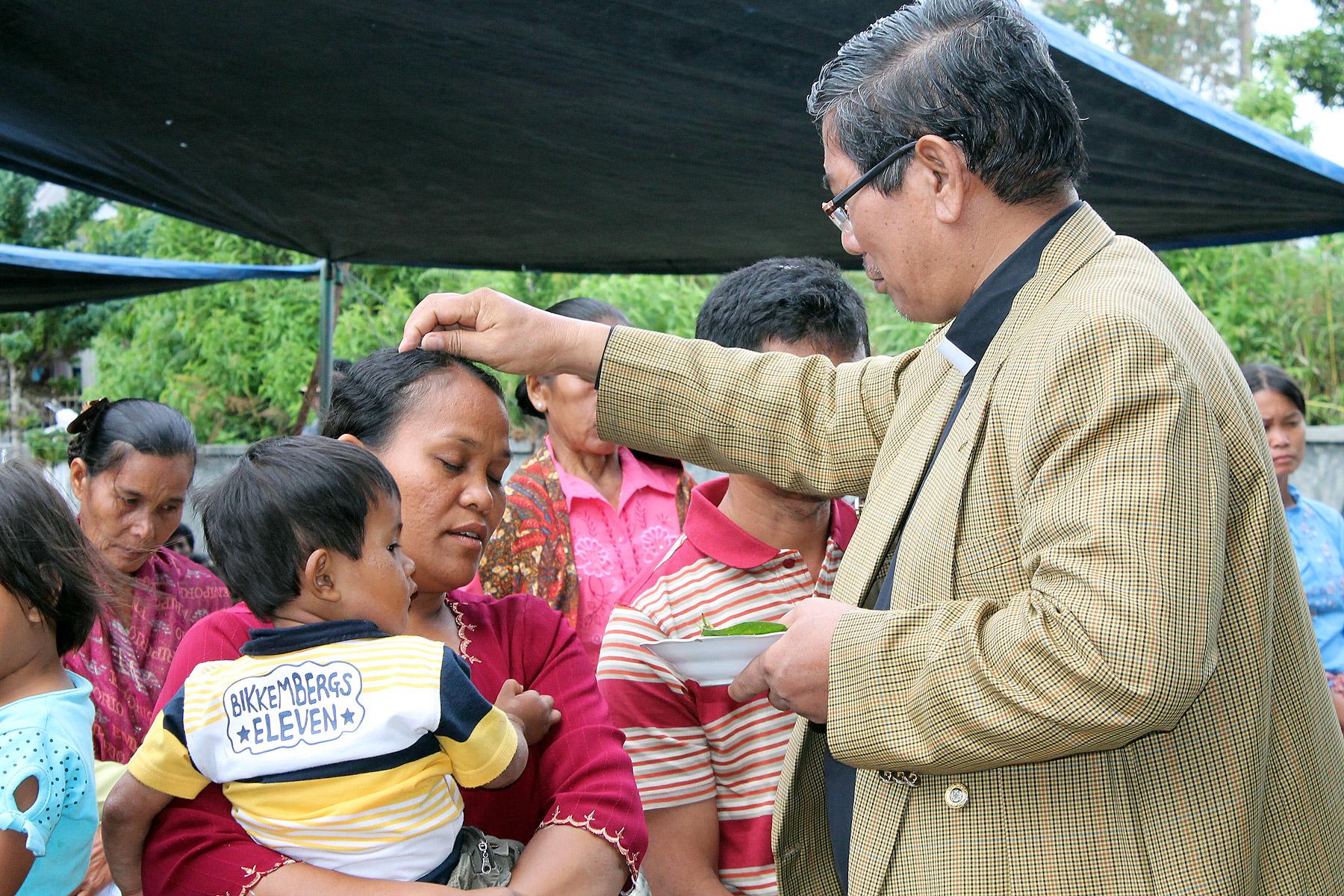A Commercial Forest versus Traditional Livelihoods in Indonesia

HKI Bishop Langsung M. Sitorus meets with Pandumaan villagers in North Sumatra. Photo: HKPB/Fernando Sihotang
Lutheran Churches Support Villagers’ Struggle to Protect Rain Forests
(LWI) - Villagers from Pandumaan in the North Sumatra province of Indonesia have been harvesting and preserving benzoin from one of the last untouched rain forests in the region for 300 years, passing on the tradition from generation to generation.
Derived from the sap of several species of styrax trees, benzoin has been used for thousands of years to make perfumes and medicines, drawing to the region merchants for the resin.
Local people believe that it was benzoin from their village which was presented as a gift to baby Jesus by a wise man from the east in the biblical Nativity story.
“This is not merely a story, this is what we have been believing in and preserving for some generations,” said benzoin farmer Sinambela.
In addition to the religious sacredness of the tree, its economic benefits have enabled the locals to send their children to university, buy food for their families, build homes and socialize with neighbors.
But their livelihoods and lifestyles are now under threat.
The Environment and Farmers’ Rights
Plans are under way to cut down some 5,000 hectares of benzoin forest to make room for eucalyptus plantations that are being created to produce paper for a pulp company in North Sumatra. This means that the local farmers are in danger of losing their only source of income.
By acquiring a land-use permit from the forestry ministry, the company will have the legal power to change the rain forest into a commercial forest, which would allow other private companies to exploit what has been a community asset for generations.
The local people have been resisting this change, and they have staged several protests against the company. The Lutheran World Federation (LWF) member churches in the country including the Protestant Christian Batak Church (HKBP), the Christian Protestant Church in Indonesia (GKPI) and the Indonesian Christian Church (HKI) have expressed concern over the farmers’ plight and the environmental destruction that would result from destruction of the ancestral forests.
Along with the HKBP congregation in Pandumaan and the LWF National Committee, church leaders have been advocating against the government’s planned exploitation of the benzoin forest, arguing that such a move will harm the people who depend on its ecosystem. In February 2013, a group of 16 farmers were detained by police after clashing with the company. They were released a month later, following intervention by Lutheran church leaders.
Arguing for the farmers’ release at the time, GKPI Bishop Patut Sipahutar told police that the villagers, who included Lutheran and other church members, were not criminals, but were merely protecting the forest so they could survive.
“They found injustices on their lands by the company which cuts their forests, creates harm and human rights violation, and denies their economic, social and cultural rights,” Sipahutar stressed.
Civil society actors and churches also took action against the environmental degradation caused by the cutting of the forest, urging a revision of forestry laws.
In May the national law was finally revised to acknowledge that indigenous groups have the right to manage the customary forests they have looked after for generations. Benzoin trees are now legally protected.
But churches and civil society organizations are still appealing to the local governments to enforce the law.
“It is almost impossible to live without the benzoin trees. We feed our families and send our children to schools only because of the benzoin trees,” stated one farmer.
Mining and Plantation Companies
According to the non-governmental organization KSPPM (Study Group for the People’s Initiative Development) which advocates for the local people’s rights, a village farmer could harvest up to 500 kilos of resin annually, before the current attempts to reduce the natural forests. With first-grade resin selling at 120,000 Indonesian rupiahs per kilo, a farmer could earn up to 60 million rupiahs (nearly USD 5,000) in a year. This supplemented income from other forest products such as rattan, honey and wild fruits, and agricultural crops including coffee, rice and various tubers—all part of an ecosystem that is now threatened by the deforestation.
The Indonesian Forum for the Environment (WALHI) estimates that by 2013 the country had lost 40 million hectares of forests—mainly in Java, Sumatra, Kalimantan, Sulawesi, and Papua—out a total forest area of about 140 million hectares. It points out that mining and plantation companies have become the primary cause of environmental destruction.
The 12 LWF member churches in Indonesia comprise more than 6 million Christians, mainly residing in the North Sumatra province.
(A contribution by LWI correspondent Fernando Sihotang)





